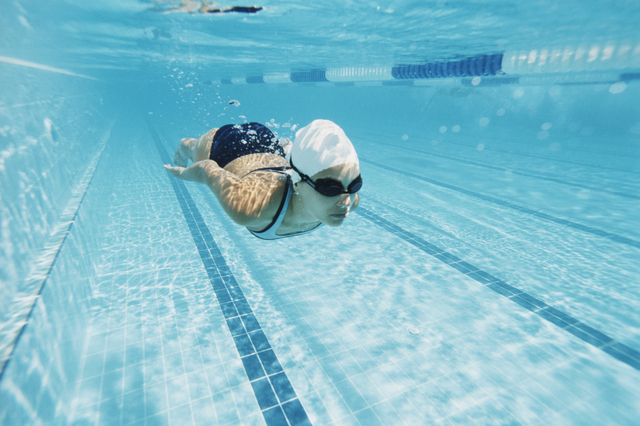What is swimmer’s ear?
It’s as accurate a name as you’ll find for a malady that does, indeed, tend to strike swimmers.
Swimmer’s ear. So what is it?
According to Dr. Helen Yang, a pediatrician with Sunshine Valley Pediatrics, swimmer’s ear — also known as otitis externa — is an infection of the outer ear canal, the portion of the ear canal that extends from the eardrum to the outside of the head (in contrast to otitis media, an infection occuring in the middle ear, the portion of the ear canal behind the eardrum).
“We call it swimmer’s ear because a lot of swimmers get it from constant moisture in the ear,” Yang says. “If they swim all the time, it makes for an environment that bacteria like.”
And swimmer’s ear usually is a bacterial infection, Yang adds.
“There are a few cases of fungal (swimmer’s ear) also, but that’s a lot less common. The majority of it is bacteria.”
Symptoms include itching and ear pain, particularly when pulling on the pinna, the outer part of the ear, or pushing on the tragus, that bump situated in front of the ear. Yang says, pain in the pinna or tragus is “one of the things we look for, (versus) otitis media.”
A more serious infection can cause such symptoms as a discharge of fluid or pus from the ear, redness or increasing pain.
Children tend to be more prone than adults to getting swimmer’s ear, and Yang says doctors do tend to see it in patients more often during warmer weather.
“Adults can get it as well,” she adds, but “more kids are likely to be in the pool, as a general rule. But, too, their ear canal is actually smaller (than adults), so more infection cause it to be a little more irritated.”
Treatment typically is a course of antibiotics delivered in the form of ear drops, Yang says, although some parents do try to self-treat first by using, for example, hydrogen peroxide. That might help a very mild case, Yang says, but wouldn’t help a more serious infection.
Left untreated, swimmer’s ear can spread to the middle ear, causing infection and inflammation. As a general rule, see a doctor if the pain is consistent over the course of a day and if over-the-counter ibuprofen or acetaminophen aren’t working.
Some swimmers try to prevent swimmer’s ear by placing drops into the ear before swimming, or using drops or a blow-dryer — gently, set to low heat and held at least a foot away from the ear — to dry the ear after swimming.
“The other thing, obviously, is wearing ear plugs if you’re swimming frequently,” Yang says.



















